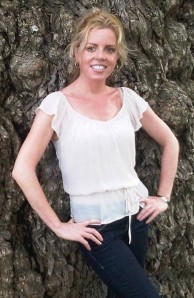
Savanna Pietrantonio: "Seeking inside keys to knowledge to prevent abuse from parents, professionals and caregivers to persons with FASD"
Internal Understanding of FASD Nuclear Reaction Meltdowns
Guest Blog by Savanna Pietrantonio
Savanna is one of our beloved FASD Survival Strategy Teachers
In an effort to reframe my understanding of meltdowns I’ve had to look deeper into the meaningful gifts of the meltdown and to change my fear and shame into acceptance that they are always going to be my body’s unique way of communicating with me.
I can go about my life for weeks accomplishing, learning, overcoming and shutting off or hiding the FASD part of me. But I feel everything intensely and emotional and physical distress is a daily part of living with the disability. In my attempt to hide my disability, act normally and bury my feelings I forget that this is not being true to my disability or myself. And my body lets me know. Usually through a meltdown of epic nuclear reaction proportions!
I have to learn to respect the meltdown as a symptom of brain damage. I am not being willful, rebellious, purposely destructive or hateful. My brain is telling me that something is wrong and I need to stop everything and ask for help to both get through daily life and to regulate my emotions.
I have discovered eight situations, which cause stress hormones to flood my system, and unfortunately my brain is not equipped to cope with the overload I am asking it to handle. Sometimes I can handle one or more, but as they add together as life often will, there may be no stopping the ensuing meltdown.

- Find your own keys that trigger our meltdowns. Understand them and then reach out to a caring support to walk through your next day safely.
Eight meltdown situations
- Social situations where I have to “be on” for extended periods
- A change in a set schedule or a plan I am expecting
- Fast paced days where I am thinking and processing constantly
- Or the opposite-days when I am wandering “lost”
- Anticipation of an event even if it’s a positive one
- After the event, the letdown and “what’s next?” feeling
- Something new being introduced into my life- a skill or an object
- An expectation that I fear I cannot meet
Neurotypical people can manage inherently as the brain balances their self-regulating neocortex with their limbic emotion regulating system—‘wise mind’ and ‘emotion mind’. My brain because of prenatal alcohol damage can’t do that. Messages between these two parts of the brain get stuck like tangled Christmas lights and I am triggered into an emotional spiral down the slippery slope to meltdown.
To the best of my ability I can tell you that the warning signs of a meltdown before or after any emotional high or low are there. Both my external brain and I must be on the lookout and aware of them. If the warnings are missed the overload becomes unmanageable. These signs present themselves ahead of the event or days to a week afterwards.

- Compassion and understanding provisions us to walk into our complex moment and process safely.
17 clues of an ensuing meltdown:
- Restless, interrupted sleep, night terrors (others have vivid dreams)
- My heart feels like it is racing and an uneasy sense of dread or urgency
- Boredom (really not knowing what to do next-directionless)
- Indecisiveness
- My surroundings become cluttered (suddenly I can’t pick up after myself)
- The tired but wired feeling
- Inability to focus on one thing but the impulse to multitask to the extreme
- Defensiveness and extreme sensitivity
- Acting withdrawn and feeling alone and isolated or isolating
- Itchy skin and breakouts
- Fidgety movements like uncontrolled scratching (others may pick or bite a part of hand or area of body - bottom lip)
- Easily frustrated to the extreme (slamming doors or verbal aggression)
- Obsessions over unrelated things and agitation with them
- A profound sense of sadness or unexplainable loss
- The feeling my brain is full and slow, like when you overeat and your stomach feels uncomfortably full
- Spending money carelessly and in excess
ThecPre-crisis—compassion
Before a crisis can occur its critical to stop the spiral by having a compassionate, understanding, non judgmental external brain who has learned not to take your behaviors personally, step in and guide my thinking, give me a perception check or just show care and not let me disconnect. This is not easy as my behaviors are shouting for help while pushing people away at the same time.
I may say something very hurtful when my external brain says, “What can I do to help you?”
“You can die!” I shout because I don’t know what he can do and my brain is no longer connecting to the part of me that can share thinking and feeling.
But there really are things he can do to help me and they really do bring down the energy and place my life back into a state of regulation.
- Hug me and say I understand. "This is because…" and name it for me
- Hold me while I cry and listen while I try to get my feelings out. This may be for more than one day as perserveration is at its most intrusive
- Help me pick up the scattered brain puzzle pieces and put them into order.
- My external brain maneuvers my day, stepping in and canceling appointments or doing a task for me so that I can include self-care and put downtime into that moment.
- Provide direction—one direction only please.
- Break down my day or task into single doable steps.
- Becoming compassionate and nonjudgmental.
- Or I need to be told to stop all my activity and go rest.
And provide time for me to complete self-care:
- Sometimes I need a complete escape and to have a fun, new adventure — this builds neuroplasticity.
- I focus on the foods that build a healthy brain-walnuts, salmon and dark chocolate—the magic trifecta for calming. Drink lots of water-mild hydration causes tiredness and fatigue. And if we’re not talking nutrition- banana bread, carrot cake, mac & cheese, spaghetti. The things that comforted me in childhood. Baking these things can be surprisingly sensory and calming.
- Sometimes I need to get to a yoga class to reconnect mind, body and spirit or I need an aggressive cardio workout that burns off the adrenaline and cortisol.
I need an intervention so that I can concentrate on the work of really surrendering to my emotions appropriately, processing whatever it was that happened, talking out my feelings and fears, feeling compassion for myself and coming to a letting go of it. It is exactly like the work of the grief process. If I skip this step, the symptoms become very aggressive and I am propelled into full fight or flight reaction and I explode with emotion and nothing and nobody is safe from the destruction or self-loathing I feel. This is where I can hurt myself, others and possessions. (Note: some people shut down and freeze.)
Handling a meltdown with love
While my external brain or myself can’t always read my bodies clues, I have learned to meltdown more appropriately as I begin to trust the process.
We have set some guidelines:
- I can’t run away, especially by driving, but staying in trust and working through the intense situation and he can’t leave me at that moment or I am unsafe.
- No arguing when glass things are within throwing reach – find a safe open place to work through the issue and I have a sensory or squishy toy in my hands instead.
- No swearing (this is so hard when I don’t have words).
- A pact I made with God and myself is that I will not engage in self harm or use substances. Ever!
- I am not to strike out in anger at him.
- I am not to say hurtful, blaming things to him about the past.
- We have personal space boundaries and if losing it is imminent my external brain cannot—imperatively—cannot react with anger and punishment or aggression and he must not come into my personal space.
Sometimes though unfortunately he has to just hold me down and use extended breathing techniques and calmly stroke my hair and tell me I am loving and loved, all is well and I am safe in a soothing voice over and over again while I kick and scream and cry until I am exhausted and its all gone and I’ve let go of my fear, urgency and panic.
Triage after the storm
Afterwards the storm really is over and I can be helped into a calm environment where he can prepare a bath (running water is soothing) with dim lighting, zen music and calming lavender or other essential oil, while I drink a magnesium supplement or I need to be soothed to sleep with weighted blankets and soothing guided meditations playing while he rubs my back or uses tapping on me.
It is possible to get to the place on the other side of the meltdown to where you can look at it and see where intervention might have stopped the spiral and what might we do differently for the next time. And reinforce that what my body was telling me is that I need to heed its signals. By understanding and reflecting back I can empower myself when I list these and review them.
The gifts of the cathartic meltdown are the stillness afterward that allows for more clarity It allows me to see what I need to let go of and what I need to clear space for. It reminds me that I can empower myself by respecting my FASD and that I have to act authentically and within my own trueness not separate from it but within in.
I no longer need to feel shame, as I know God made me exactly how He wanted me to be with unique built in ways of communicating my needs. I’ve come to embrace and be comfortable in the discomfort knowing that every emotion felt will pass if accepted and felt with compassion.
I can return to the path of “Buddha-nature that is found within suffering and our relationship to it, not by escaping it.” 1 The taking care of self becomes easier and better the more often you do it and the more your heart and soul become aligned. After all, the Spectrum is halfway to spectacular.2
Sources:
1 Kiera Van Gelder
2 Koren Zailckas























